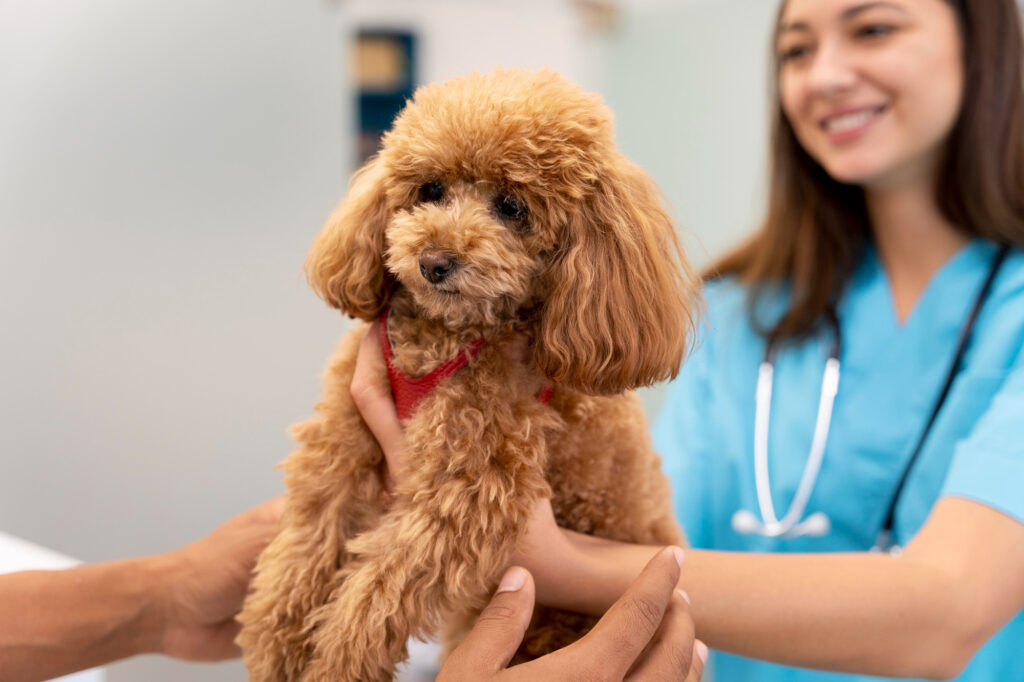The Importance of Regular Veterinary Check-Ups for Pets

Table of Contents Show
Introduction
Caring for a pet involves more than just feeding and playing with them. Like humans, pets need regular health check-ups to stay healthy and happy. Consistent veterinary visits are essential for preventative care, early detection of diseases, and overall well-being. Institutions like Fairfax Animal Hospital VA emphasize the importance of these regular check-ups to maintain optimal pet health. These check-ups are not just a formality; they are a comprehensive evaluation designed to catch any hint of problems before they become serious.
Why Regular Vet Visits Are Crucial
Regular veterinary check-ups are more than just routine; they’re lifesaving. Annual or bi-annual visits allow vets to monitor your pet’s health over time and introduce necessary interventions. Continuous care helps maintain accurate health records, which can be beneficial in emergencies and ensures early detection and treatment of potential issues. These scheduled visits can also help acclimate your pet to the veterinary environment, reducing stress during future visits. Moreover, keeping a consistent check on your pet’s health helps spot trends that might indicate underlying issues that are not immediately apparent.
Early Detection and Treatment of Health Issues
Routine vet visits’ early detection of potential health problems is one significant benefit. Issues like heart disease, diabetes, or arthritis can be caught in their nascent stages, making treatment more accessible and effective. Studies have shown that early diagnosis often means less invasive treatments and better outcomes, ensuring a higher quality of life for pets. By identifying these conditions early on, you can manage them before they develop into more severe or chronic conditions, thus extending the lifespan and well-being of your pet.
Importance of Dental Health in Pets
Dental health is often overlooked, yet it’s critical to your pet’s well-being. Regular check-ups include dental exams that can prevent issues like gum disease and tooth loss. Maintaining good oral hygiene can also prevent more severe health issues, like kidney or heart disease, often linked to poor dental care. Ignoring dental health can lead to painful conditions for your pet, making it difficult for them to eat and enjoy their food. It’s essential to incorporate dental check-ups into your routine vet visits to ensure comprehensive health care for your pet.
Vaccinations and Preventative Care
Keeping up-to-date with vaccinations is crucial for preventing serious diseases, such as rabies and distemper. Regular check-ups ensure your pet gets timely vaccines. Additionally, preventative care for parasites like fleas, ticks, and worms keeps your pet comfortable and healthy year-round. Vaccinations are a fundamental aspect of preventative health care, designed to shield your pet from life-threatening conditions that can be easily avoided. Some provide a comprehensive guide on the importance of vaccinations and preventative care, highlighting how crucial these measures are for long-term health.
Managing Weight and Diet
Veterinarian visits provide an opportunity to evaluate your pet’s weight and diet. Obesity is a prevalent problem in pets that can result in serious health issues like joint problems and diabetes. At a vet appointment, professionals can provide personalized diet tips and feeding suggestions for your pet, helping them stay healthy with an appropriate weight and diet. Following a tailored nutritional plan can improve your pet’s energy levels, quality of life, and longevity. These check-ups can also include discussions on exercise routines suitable for your pet, holistic dietary approaches, and any supplements that might benefit your pet’s health.
Behavioral Consultations
Sometimes, behavioral issues in pets can indicate underlying health problems. Regular visits allow for consultations on any changes in behavior, whether it’s excessive barking, aggression, or signs of anxiety. Intervening early can have a significant impact on addressing these problems. Vets can recommend behavioral training or adjustments in routine to address these concerns effectively. Behavioral consultations can also uncover psychological triggers affecting your pet’s behavior, providing a pathway to a happier and more balanced life for your furry companion. It’s essential to address behavioral issues promptly to prevent them from escalating and affecting your pet’s overall well-being.
How Often Should You Visit the Vet?
How often your pet should go to the vet can change based on their age, type of animal, and overall health. Generally, annual check-ups are recommended for young and healthy pets; older animals or those with chronic health issues may need to schedule more frequent appointments. Your vet can provide a schedule tailored specifically to your pet’s needs. Frequent appointments help set a foundation for good health, making it more straightforward to identify and manage any changes promptly. Frequent appointments provide a great chance to get answers to your queries and get customized guidance based on your pet’s lifestyle and requirements.
Conclusion
Routine veterinary examinations are necessary for being a conscientious pet owner. They ensure your furry friends live long, healthy, and happy lives. By investing in routine vet visits, you’re taking a proactive step toward your pet’s overall health and well-being. A little care today can prevent significant issues tomorrow, making life better for you and your loyal companion. Remember, a pet’s love is unconditional; our top priority should be ensuring their health and happiness. Routine check-ups are a small yet significant effort in fostering a loving, healthy bond between you and your pet.





Responses